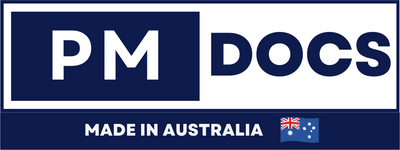How Consultants Can Help With GDPR Toolkit In Australia?
Introduction
As businesses increasingly operate in a digital world, safeguarding personal data has become a pressing concern. The General Data Protection Regulation (GDPR), originally enacted by the European Union, has raised the bar for data protection and privacy standards globally. Although GDPR is not an Australian law, its implications reverberate worldwide, prompting Australian businesses to align their practices with international standards to ensure compliance. This is where consultants come into play—offering expertise, tailored strategies, and comprehensive toolkits to help organizations navigate the complexities of GDPR compliance.

Australia’s Privacy Act 1988 vs GDPR: Similarities And Differences
Privacy Act 1988 and the European Union’s General Data Protection Regulation (GDPR) are both designed to protect personal information but differ significantly in their scope, enforcement, and principles. Below are the Similarities and Differences
Similarities Between Australia’s Privacy Act 1988 And GDPR
1. Focus on Personal Data Protection - Both Australia's Privacy Act and the GDPR prioritize the protection of personal data. They acknowledge the importance of individual privacy rights and aim to provide legal frameworks that safeguard these rights, ensuring that personal information is collected, stored, and processed in a compliant manner.
2. Consent Requirements - Both laws emphasize the necessity of obtaining explicit consent from individuals prior to processing their personal data. Under the Privacy Act, organizations need to have a clear purpose for data collection and inform individuals about how their information will be used. Similarly, the GDPR mandates that consent must be given freely, specific, informed, and unambiguous.
3. Rights of Individuals - Individuals in both Australia and the EU have specific rights regarding their personal information. These include the right to access their data, the right to correction, and the right to complain to a regulator about unlawful processing. The inherent goal of both frameworks is to empower individuals to maintain control over their personal information.
Differences Between Australia’s Privacy Act 1988 And GDPR
1. Scope and Applicability
One of the most significant differences lies in their scope. The GDPR applies to all organizations that process personal data of EU citizens, regardless of where the organization is located. This extraterritorial application provides a broader reach compared to Australia’s Privacy Act, which primarily applies to Australian organizations and their overseas operations. The GDPR's expanded jurisdiction means that many international companies must comply with its regulations when handling data of EU residents.
2. Penalties and Enforcement
The enforcement mechanisms of both laws also differ markedly. Under the GDPR, non-compliance can result in hefty fines of up to 4% of annual global turnover or €20 million, whichever is greater. This creates a strong incentive for organizations to adhere strictly to the regulation. In contrast, Australia’s Privacy Act enforces softer penalties, with fines typically capped at AUD 2.22 million for serious or repeated breaches, making it less financially punitive for organizations.
3. Data Breach Notification
The GDPR has a stringent requirement for data breach notifications, obligating organizations to inform relevant authorities within 72 hours of becoming aware of a breach, and to notify affected individuals without undue delay when the breach poses a high risk to their rights. Australia’s Privacy Act, while also requiring data breach notifications, lacks the strict 72-hour timeframe, giving organizations more leeway in reporting breaches.
4. Concepts of Data Minimization and Privacy by Design
The GDPR introduces robust principles such as data minimization and privacy by design, requiring organizations to limit the collection of personal data to what is necessary and to embed privacy measures at the heart of their processing activities from the outset. While Australia’s Privacy Act includes principles that promote good data governance, it does not explicitly mandate such structured approaches.
Why Australian Businesses Struggle With GDPR Compliance & How Consultants Can Help?
The General Data Protection Regulation (GDPR) has transformed the landscape of data protection standards worldwide. Despite its origins in Europe, many Australian businesses find themselves grappling with GDPR compliance due to various challenges.
Key Reasons For Compliance Challenges & Role of Consultants in Navigating GDPR Compliance
Challenge 1: Lack of Awareness and Understanding
Many Australian businesses are not fully aware of the implications of GDPR. While larger companies often have dedicated compliance teams, smaller organizations may lack the resources or knowledge needed to interpret complex regulations.
Solution: Expert Guidance
Consultants specializing in GDPR compliance bring in-depth knowledge and experience. They can demystify the regulations, guiding businesses through the nuances and helping to identify areas that need attention.
Challenge 2. Confusion Over Applicability
Australian companies often struggle with understanding whether GDPR applies to them. The regulation is applicable to any business handling data of EU citizens, which can lead to confusion for businesses that are unsure of their reach.
Solution: Compliance Audits
Consultants can conduct thorough audits to assess existing data protection measures. This allows businesses to understand their compliance status and prioritize necessary changes to align with GDPR requirements.
Challenge 3. Limited Resources
Compliance with GDPR requires investment in both time and financial resources. Many Australian startups and SMEs have limited budgets and human capital, making it difficult to prioritize GDPR compliance amidst other pressing business needs.
Solution: Tailored Strategies
Every business is unique, and consultants can create customized compliance strategies that align with a company's specific operations, size, and data handling practices.
Challenge 4. Existing Privacy Frameworks
Australian businesses often operate under the Australian Privacy Principles (APP) but may not realize how these differ from GDPR. This can lead to misunderstandings about what changes need to be made to meet GDPR requirements.
Solution: Training and Awareness Programs
A critical aspect of GDPR compliance is staff awareness. Consultants can implement training programs to educate employees about data protection standards and the importance of adhering to GDPR.
Challenge 5. Ongoing Regulatory Changes
Data protection is a rapidly evolving field, with regulations subject to frequent updates. Keeping up with changes and understanding how they affect business practices can be overwhelming for many Australian companies.
Solution:. Ongoing Support and Updates
Compliance is not a one-off process but requires constant monitoring and adjustments. Hiring a consultant ensures that businesses have ongoing support and access to the latest regulatory updates, helping them maintain compliance in the long term.
Benefits Of Using Consultants For GDPR Toolkit In Australia
Engaging consultants for implementing a GDPR toolkit offers numerous advantages that can streamline compliance and optimize data management processes. Here are some key benefits:
1. Expertise and Knowledge - Consultants specializing in GDPR bring a wealth of knowledge and expertise to the table. They stay updated on the latest regulations, best practices, and industry standards, ensuring that your business complies effectively with GDPR requirements.
2. Tailored Solutions - Each organization has unique data protection needs. Consultants provide tailored solutions that align with your specific business processes, helping to design a GDPR toolkit that meets both compliance and operational goals.
3. Risk Assessment - Consultants can conduct comprehensive risk assessments, identifying potential vulnerabilities in your data processing activities. This proactive approach allows businesses to address risks before they lead to non-compliance or data breaches.
4. Time and Resource Efficiency - Implementing GDPR compliance can be time-consuming and resource-intensive. By hiring consultants, businesses can save valuable time and allow their internal teams to focus on core activities, ultimately improving overall productivity.
5. Training and Development - Consultants often provide training and development programs for staff, ensuring that employees understand GDPR policies and procedures. This creates a culture of data protection within the organization, enhancing compliance.
6. Comprehensive Documentation - A well-structured GDPR toolkit requires comprehensive documentation. Consultants assist in creating necessary policies, procedures, and records, ensuring that your organization can demonstrate compliance if ever challenged.
7. Ongoing Support - Post-implementation support is crucial for maintaining compliance. Consultants offer ongoing assistance and periodic audits to help organizations adapt to evolving regulations and ensure continuous improvement.
Conclusion
The implementation of a GDPR toolkit is a vital step for Australian organizations looking to ensure compliance with global data protection standards. By engaging experienced consultants, businesses can navigate the complexities of GDPR with confidence, create robust data protection strategies, and ultimately transform compliance into a competitive advantage. The expertise and personalized approaches offered by these professionals are invaluable in an ever-changing regulatory environment, making it essential for Australian organizations to consider consultation as part of their GDPR journey.




